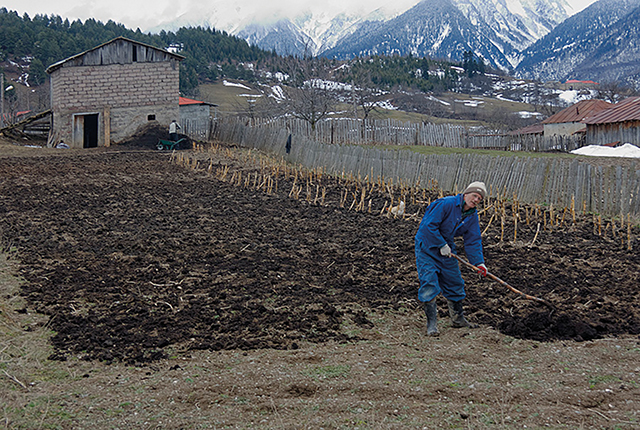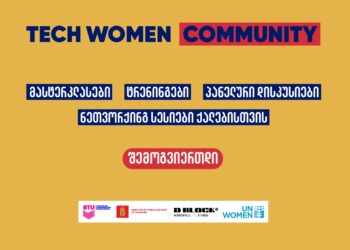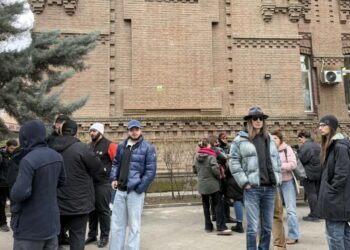Read Part 1: Winter here.
Continuing my series on what this great, high, faraway province has taught me in the 15 years I lived there, now writing from Tbilisi. This time we will jump the gun a bit and turn our attention to the most eagerly awaited and perhaps always shortest season of all, Spring.
Winter has been long and harsh. Up there, we consume a lot of firewood and electricity both, mostly for heating, although my wife and I typically use more electricity than wood. This is because we have the heaters anyway, bought second-hand years ago, and we also don’t have the logging rights OR forest experience that local Svans typically do. Our firewood has typically come from all the leftovers when building things like the café (a lot of scrap wood results from this). The rest has been logs delivered by oxen-pair, every 2nd year or so, which need at least a year of drying once they’re chain-sawed and split, to minimize their creosote output and maximize efficiency when we burn them. Now, with the arrival of spring, as things warm up, the electrical and firewood loads both lessen. We also do as much cooking as possible using electricity, instead of the wood-burning stove, being that it’s free!
Late winter has given us Lamproba, the joyous Svan festival of burning torches, commemorating an important military victory, tied to the changing Easter calendar which really heralds the seasons’ change. White’s dominance gives way to all the greens the eye has been longing for for nearly half a year, and then all the colors of wildflowers one after another. The bees get busy outdoors as well, following the long dormancy in their hives. Snow-melt briefly turns our slightly sloping fields into virtual swamps as it pours off and down towards the waiting Enguri River.
Spring… time to get busy in the garden, probably the main work difference. Once the snow has gone, usually in April, the now much darker ground soaks up sunlight in the lengthening daytime, thaws quickly, softens and warms up. Manure from the cows can be spread, and plowing done. Formerly this was another oxen-pair job, but increasingly we see it done using gasoline-powered small or large implements, either hand-steered by a walker, or ride-on ones if the farmer can afford such. Potatoes are the main perennial crop, but also corn, squash, beans, onions and other herbs.

My wife loves having flowers, so she plants a lot of these as well. The fruit trees need pruning, either by handsaw or secateurs (a variation on scissors). Our temperate fruits include apples, pears, plums sweet or sour, cherries ditto, raspberries, strawberries, quinces a bit lower down than where we live. Walnuts are very popular too, an important crop, though ours, a wedding present as seedlings, are still not mature enough yet. Some hazelnuts, but these more wild than cultivated. There’s weeding to do too, and letting the cows do most of their eating in village fields. These are opened several at a time for local herds to graze on, then closed one after the other and their hay allowed to grow up for the coming winter. Eventually the cattle will be going outside the village for their main summer daily grazing, but those higher pastures are not yet free of snow.
We check what if any damages have been wrought by the loads of snow, chiefly to fences, which may have sagged or outright fallen over in sections. There may be need to either pound back in oak fence-posts if these have worked loose, or replace them altogether if their pointed ends have started to rot after the years of life they typically give. We may also need more wire and fence-slats for the repairs. Cows or pigs will get in wherever they can, so the fight against them must be vigilant!
The whole local world is waking up, stretching, returning to life. But as I write this, our village of Etseri is still seeing above-freezing temperatures during the day, and not much below freezing at night. The shortest day of the year, just before the last week of December, and the first snow to stay and not melt, are still ahead. So all that winter is yet to come. And this time, aside from its stark monochrome beauty, writing in my dressing gown in our centrally heated Tbilisi apartment, I will miss it not a bit.
BLOG by Tony Hanmer
Tony Hanmer has lived in Georgia since 1999, in Svaneti since 2007, and been a weekly writer and photographer for GT since early 2011. He runs the “Svaneti Renaissance” Facebook group, now with nearly 2000 members, at www.facebook.com/groups/SvanetiRenaissance/
He and his wife also run their own guest house in Etseri: www.facebook.com/hanmer.house.svaneti














